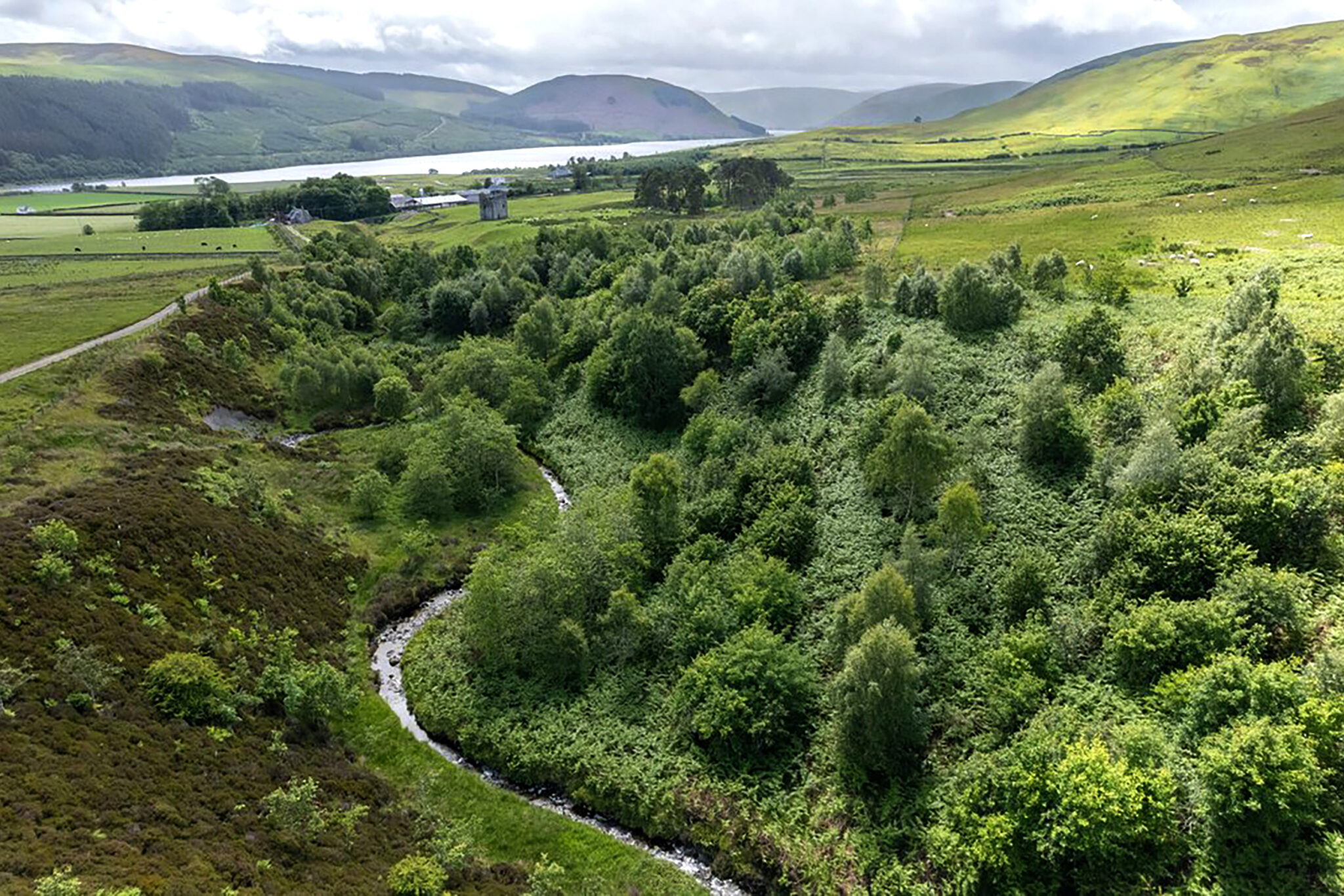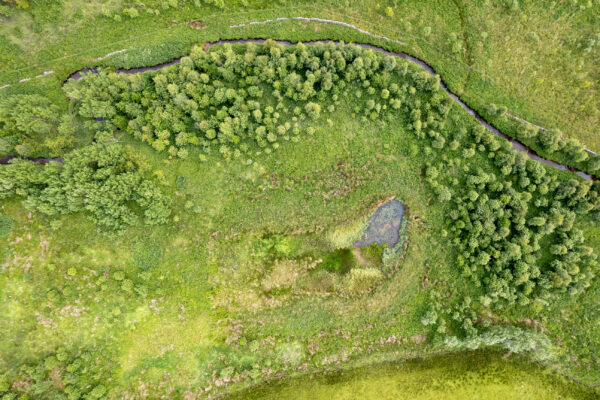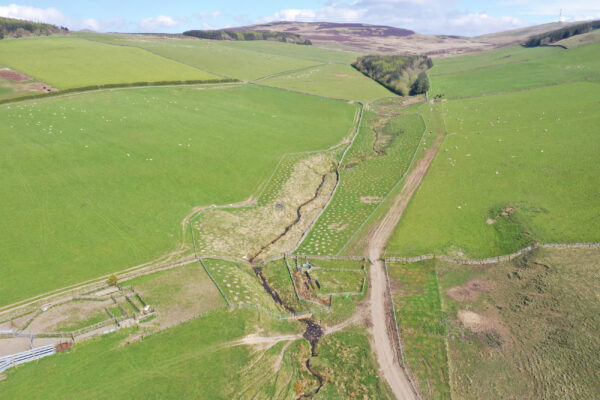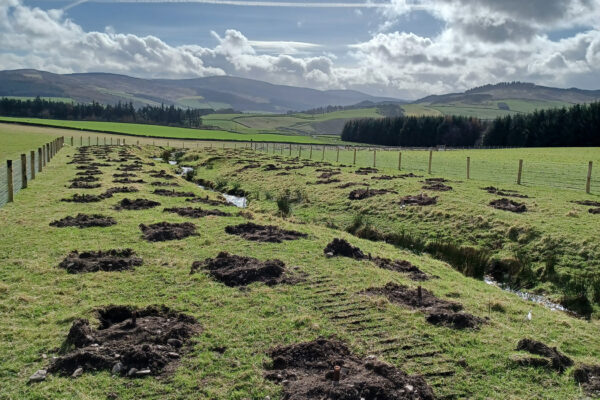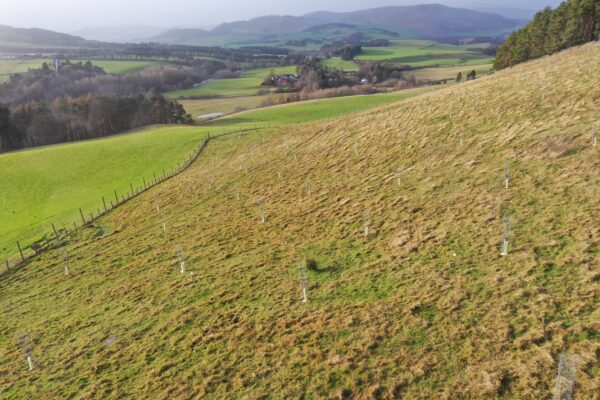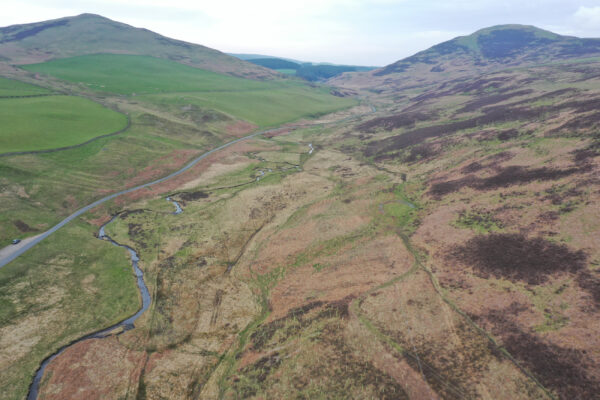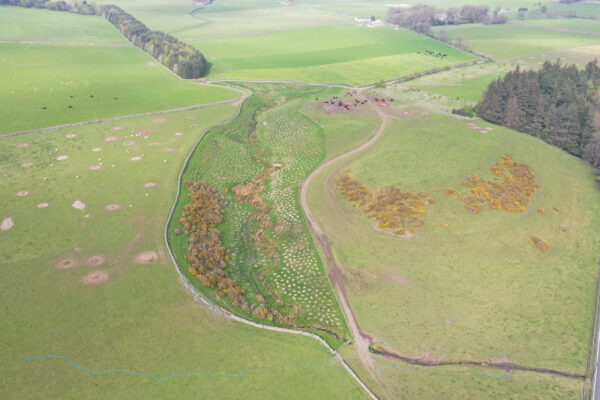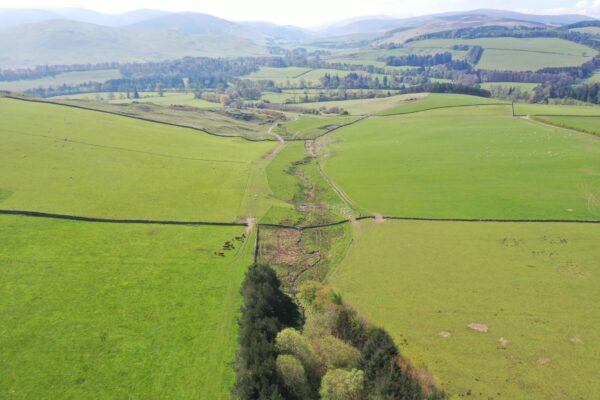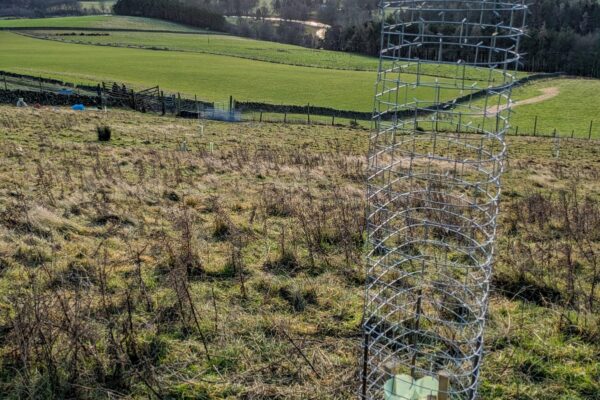Woodlands for Wildlife & Water
What Is Agroforestry?
Agroforestry is an innovative land management approach. Rather than separating agriculture and native woodlands, agroforestry integrates trees into farmland in a planned and productive way. Trees may be planted alongside crops, within grazing fields, or along watercourses creating landscapes that work harder for people and nature alike.
How Agroforestry Works
Agroforestry can take many forms, depending on the land and farming system. Common examples include:
- Trees in arable land, providing a windbreak for crops and creating habitat links.
- Wood pasture, combining grazing with scattered or grouped trees for livestock shelter and shading.
- Riparian planting, where trees and shrubs are established along rivers and burns to increase infiltration and cool river temperatures.
Each approach is designed to complement farming activity while enhancing the wider environment.
Agroforestry and River Catchments
In river catchments like the River Tweed, agroforestry could play an especially important role. Trees planted within farmland and along watercourses help to stabilise riverbanks, reduce flood risk, improve habitats for fish and wildlife, and protect water quality downstream.
Native woodlands help deliver a host of beneficial ecosystem services and public goods, including improved water quality, natural flood management, biodiversity enhancement, carbon sequestration and community access benefits. Riparian woodlands particularly can have a huge role to play in mitigating rising river temperatures, which are increasing with climate change.
By slowing the movement of water through the landscape, agroforestry supports healthier rivers while maintaining productive land use.
A Practical Approach for the Future
Agroforestry is not about taking land out of production — it’s about making land work better. By enhancing farming while balancing nature and climate needs, agroforestry offers a practical, long‑term solution for resilient landscapes that benefit communities, wildlife and future generations.
Agroforestry work is a key part of the Woodlands for Wildlife and Water project delivering significant benefits to farmers and landowners on the Tweed.
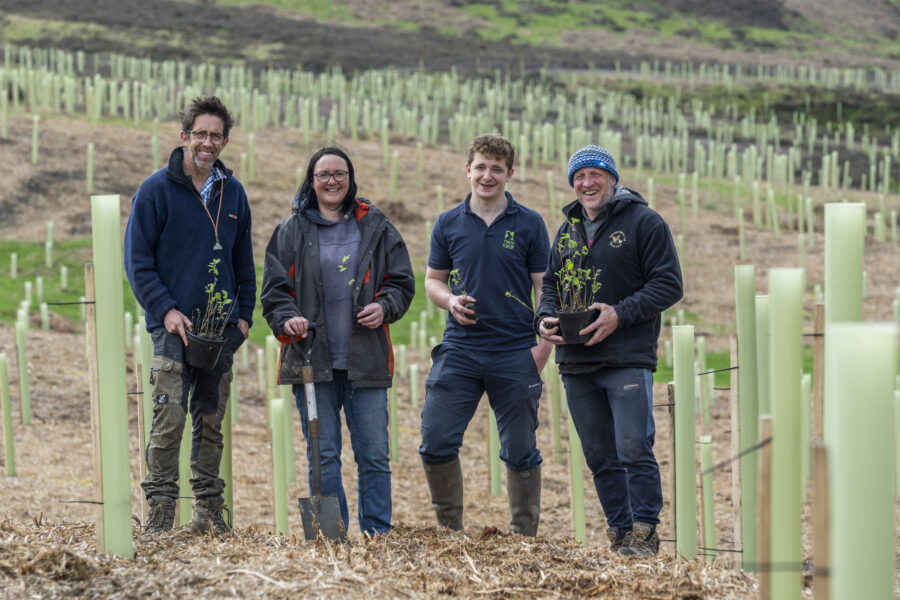
Working with landowners, land managers and local communities, the project is crucial to tackling environmental and climate issues affecting the River Tweed catchment such as increasing river temperatures and loss of habitat.
Significant progress has already been made with over 56.5ha of native woodland already created, which is just over 59,000 trees. A range of species including alder, aspen, birch, oak, cherry, rowan, willow hawthorn and hazel have been planted.
Planting will also improve wildlife connectivity and provide shade and shelter for livestock as well as increasing farm biodiversity. The carbon credits generated through the project can be sold or kept for the farm business.
The new woodlands will enhance the visitor experience for anyone using the planned River Tweed Trail, with much of the woodlands close to, or visible, from the new route.
Watching trees grow requires patience!
But you can get a glimpse of the impact which the Woodlands for Wildlife and Water project is having now in our before and after gallery.
-
Before
After
Wytchwood before with planting area highlighted and after completion of planting in May 2025. Tree guards are in place to protect species and encourage growth.
-
Before
After
Edston site looking North captured before and after planting in 2025.
Get in Touch
If you’re a landowner and have ideas for potential projects, we’d love to hear from you.

